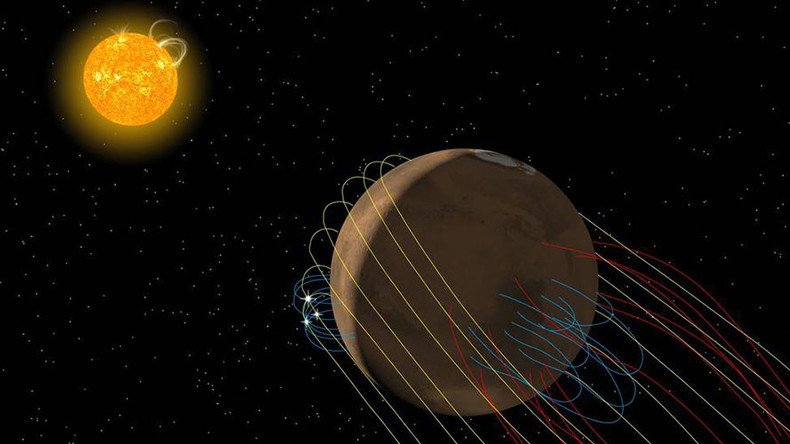NASA exploring whether a ‘magnetic tail’ is destroying Martian atmosphere
Plasma explosions from the sun over billions of years have all however stripped mars of its ecosystem. However, a new discovery by NASA suggests that remnants of the red planet’s magnetic subject can be found in the shape of a rotating ‘tail’.
Invisible to the bare eye, the so-known as ‘magnetotail’ become currently detected through NASA's Mars environment and volatile evolution mission spacecraft (maven).
Invisible to the bare eye, the so-known as ‘magnetotail’ become currently detected through NASA's Mars environment and volatile evolution mission spacecraft (maven).
Maven changed into released in 2013 to hint the martian global’s climate records and decide if it could have as soon as sustained life.
The ‘tail’ phenomenon is due to solar winds whipping over the surface of the planet, resulting inside the final pockets of Mars’ as soon as-shielding magnetic discipline becoming a member of with sun plasma particles.
The ‘tail’ phenomenon is due to solar winds whipping over the surface of the planet, resulting inside the final pockets of Mars’ as soon as-shielding magnetic discipline becoming a member of with sun plasma particles.
The technique can cause magnetic forces to be twisted through the 1.6 million kph solar winds, stated Gina Dibraccio, of NASA's Goddard area flight middle. It can also be contributing to the destruction of Mars’ skinny atmosphere, allowing gases to get away into the area.


"Our model predicted that magnetic reconnection will reason the martian magnetotail to curve 45 degrees from what’s based totally on the direction of the magnetic area carried by means of the solar wind.”- stated by DiBraccio
The “specific” magnetic subject motion was measured and mapped the usage of the Maven spacecraft’s magnetometer. Over the next couple of years, NASA plans to discover precisely how large the impact of magnetic motion is to the red planet’s atmospheric loss.


"Our model predicted that magnetic reconnection will reason the martian magnetotail to curve 45 degrees from what’s based totally on the direction of the magnetic area carried by means of the solar wind.”- stated by DiBraccio
The “specific” magnetic subject motion was measured and mapped the usage of the Maven spacecraft’s magnetometer. Over the next couple of years, NASA plans to discover precisely how large the impact of magnetic motion is to the red planet’s atmospheric loss.

No comments